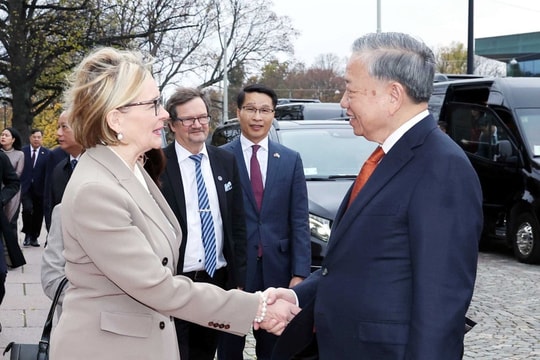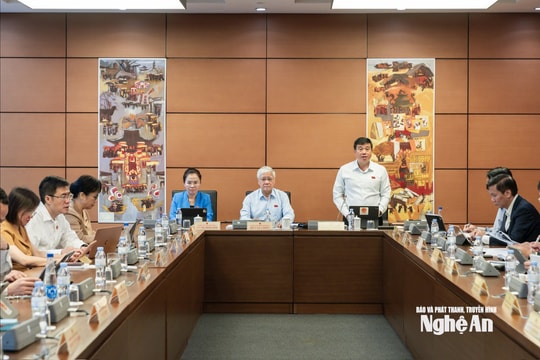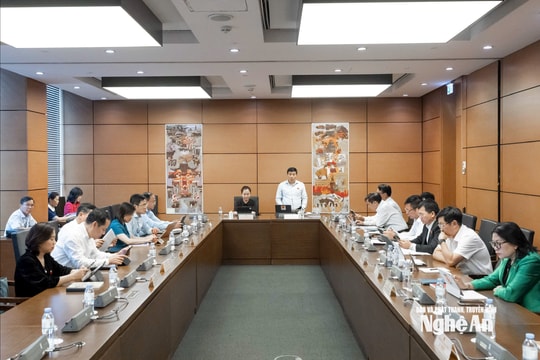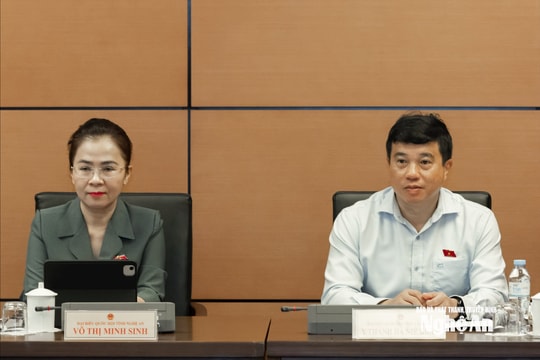Submit to the National Assembly the Draft Law on Press (amended), supplementing regulations on key multimedia media agencies
On the morning of October 23, continuing the program of the 10th session of the 15th National Assembly, under the chairmanship of Politburo member and National Assembly Chairman Tran Thanh Man, the National Assembly listened to presentations and examination reports on 5 draft laws.
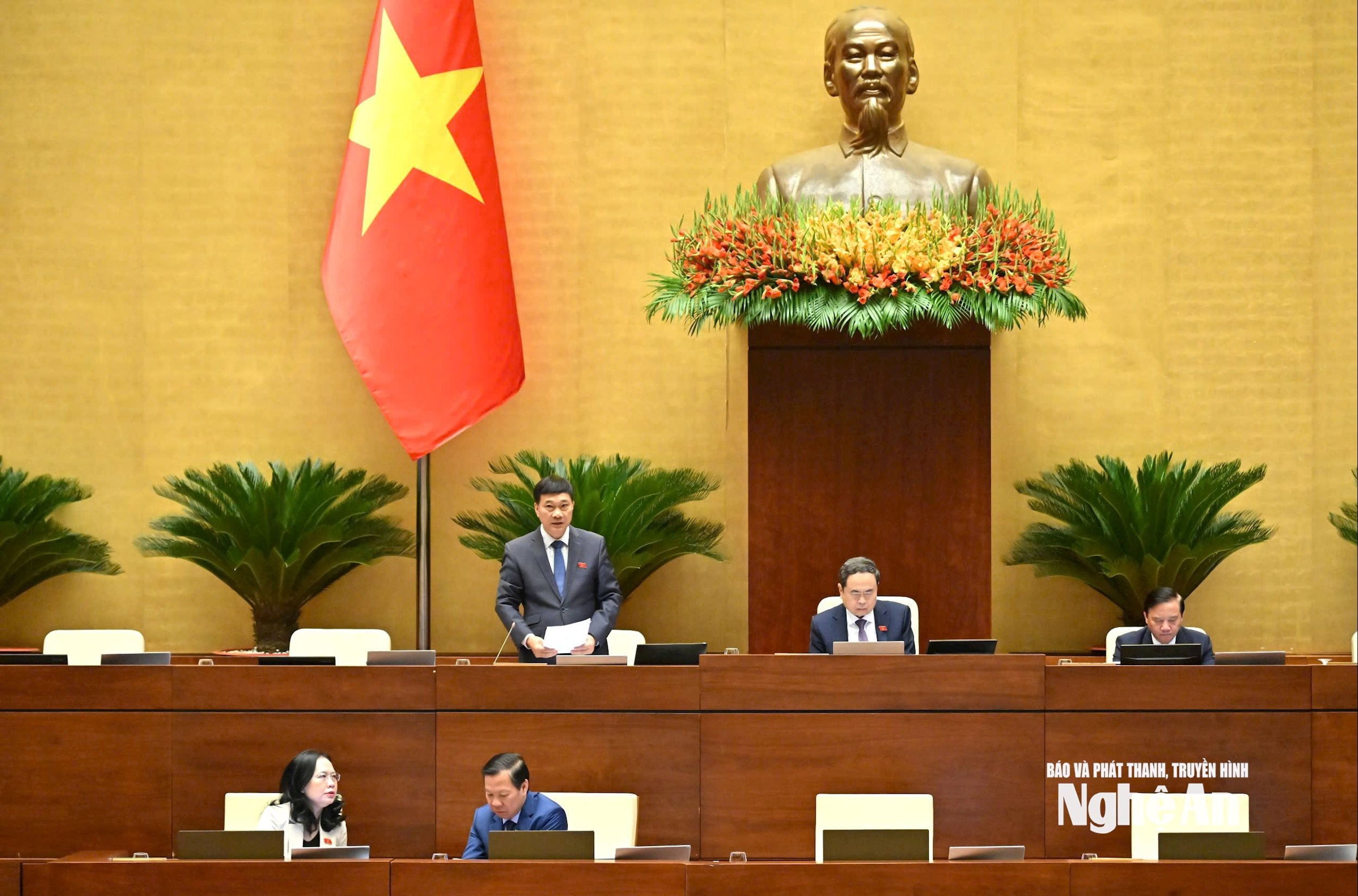
Comrade Vo Thi Minh Sinh - Deputy Secretary of the Provincial Party Committee, Chairwoman of the Vietnam Fatherland Front Committee of Nghe An province, Head of the National Assembly Delegation of Nghe An province and delegates attending the meeting.
Expanding the space of press activities
At the working session, Minister of Culture, Sports and Tourism Nguyen Van Hung presented the draft Law on Press (amended). Accordingly, with the spirit of innovation in law-making thinking, the Draft Law on Press (amended) stipulates framework issues, principled issues under the authority of the National Assembly, and frequently changing practical issues assigned to the Government, ministries, branches and localities to ensure flexibility and suitability to reality.
On that basis, the structure of the Draft Press Law (amended) includes 4 Chapters and 51 Articles (2 Chapters and 10 Articles less than the 2016 Press Law); it is expected that the Law will assign the Government and the Ministry of Culture, Sports and Tourism to specify a total of 27 Articles.
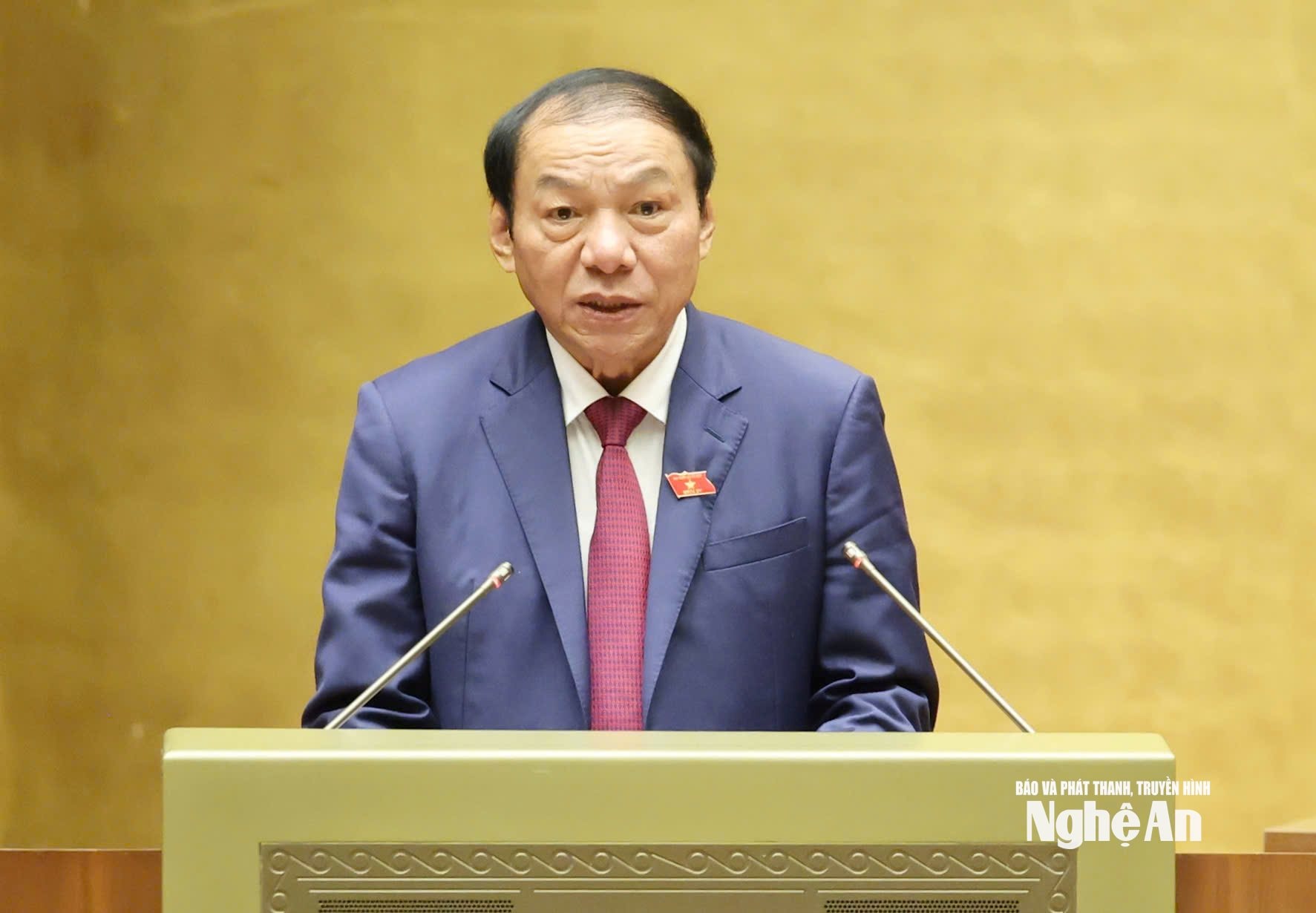
Notably, the draft Law has added regulations on the authority of the Provincial People's Committee to: Grant and revoke licenses to publish additional press publications and supplements for local press agencies; register the list of imported printed press for business establishments providing imported press distribution services; grant licenses to publish newsletters for local agencies, organizations and enterprises; grant licenses to publish special issues for local agencies, organizations and enterprises...
In particular, the draft Law stipulates principles on operating models, press economics, and expanding the press's operating space to develop the press in the context of streamlining the political system's organizational apparatus, meeting information and propaganda requirements in the new era.
Accordingly, the following provisions are added: A key multimedia media agency is a press agency with many types of press and affiliated press agencies; with a specific financial mechanism according to Government regulations; established in accordance with the Press System Development and Management Strategy approved by the Prime Minister. A press, radio and television agency is a press agency under the provincial or municipal Party Committee, with many types of press and press products.
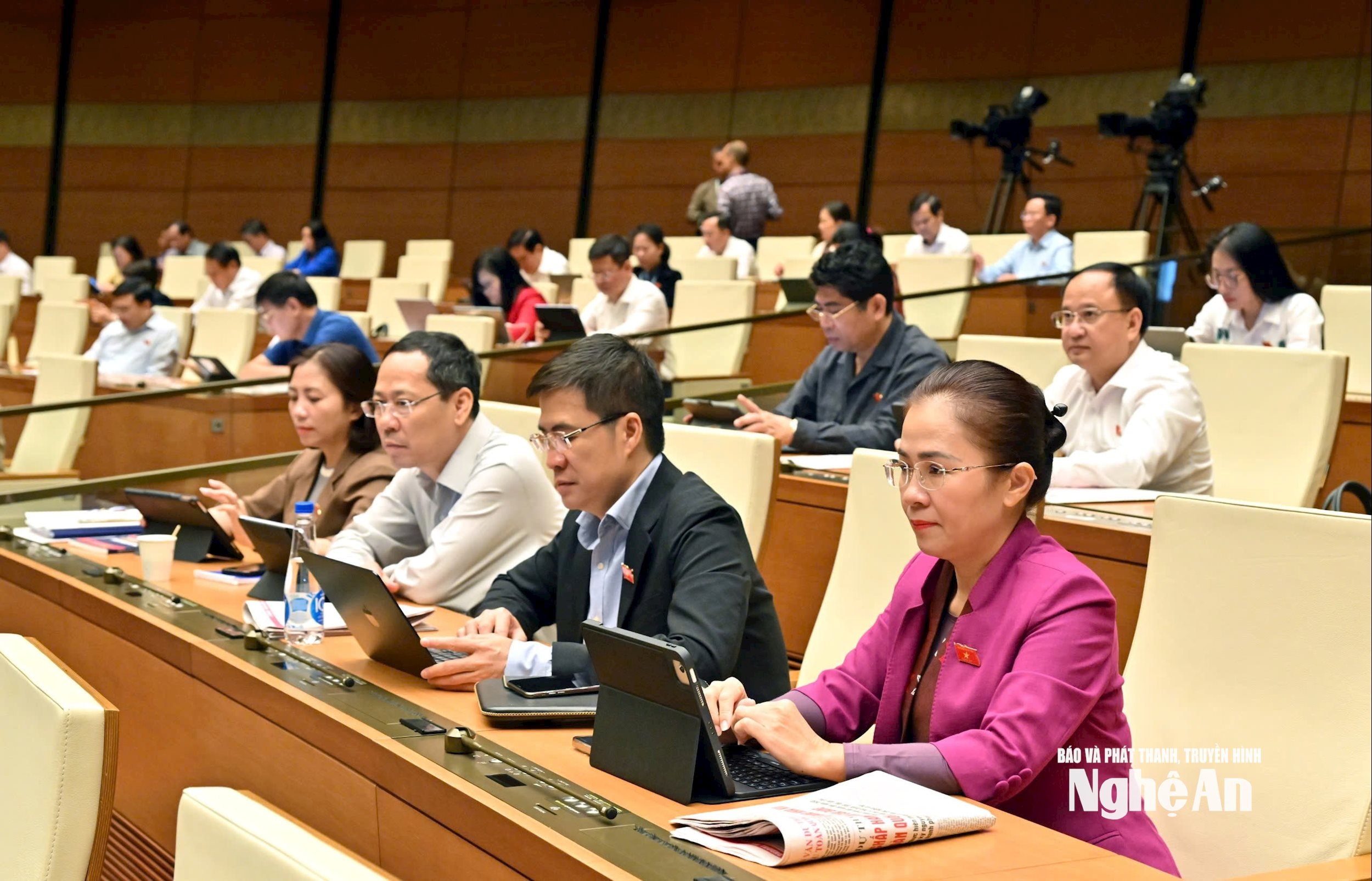
The draft law also adds provisions on the activities of press agencies in cyberspace. Accordingly, the activities of press agencies in cyberspace must comply with the laws on press, cyber security, regulations on the principles and purposes of press agencies and be consistent with international treaties to which the Socialist Republic of Vietnam is a member.
At the same time, supplement the concept of press publishing on cyberspace including: Posting and broadcasting information on the content channels of press agencies on cyberspace and the national digital press platform; supplement the regulation that the national digital press platform and the content channels of press agencies on cyberspace are press products.
Press agencies shall notify the State press management agency when opening content channels on cyberspace and connect online with the archive system of the State press management agency to serve the measurement of information trends on cyberspace.
In addition, the draft law also adds regulations that press agencies are allowed to cooperate in producing content, except for content on political news, security, national defense, and foreign affairs, to promote press agencies to exploit the value from joint activities to serve press development, while at the same time, ensuring orientation in political news information (information on activities of Party and State leaders, important events of the country...), security, national defense, and foreign affairs.
Along with that, the draft Law supplements the full provisions on the methods by which the State assigns tasks, places orders, bids and supports transportation costs, publishing, transmission and broadcasting costs for the press to serve political, security, national defense, cultural, information and propaganda tasks on emergency situations, foreign information, policy communication, serving teenagers, children, the deaf and blind, ethnic minorities, areas with particularly difficult socio-economic conditions, remote areas, mountainous areas, border areas, islands and other important tasks according to the Prime Minister's decision. The State allocates the State budget to purchase public career services and regularly supports press agencies.
On the other hand, the draft Law submitted to the National Assembly amends and supplements the provisions on the Press Card. Accordingly, the provisions on the validity period of the Press Card are removed. The validity period of the Press Card is stipulated to be 5 years from the date of issue and is stated on the card. When the Press Card expires, the Ministry of Culture, Sports and Tourism will consider issuing a new Press Card.
Along with that, the draft Law also adds regulations to strictly manage press activities, ensuring efficiency, effectiveness and efficiency in management work, including adding the concept of magazine to clearly distinguish between newspapers and magazines, preventing the "newspaperization" of magazines; adding conditions for the first time issuance of a Journalist Card to have to attend a training course on journalism skills and professional ethics organized by the Ministry of Culture, Sports and Tourism in coordination with the Vietnam Journalists Association.
Clarifying the concept of "journalism economics"
Chairman of the National Assembly's Committee on Culture and Society Nguyen Dac Vinh presented a report on the review of the Draft Law on Press (amended); thereby, he expressed his approval of the need to comprehensively amend the Law on Press; and basically agreed with the scope and subjects of regulation of the draft Law.
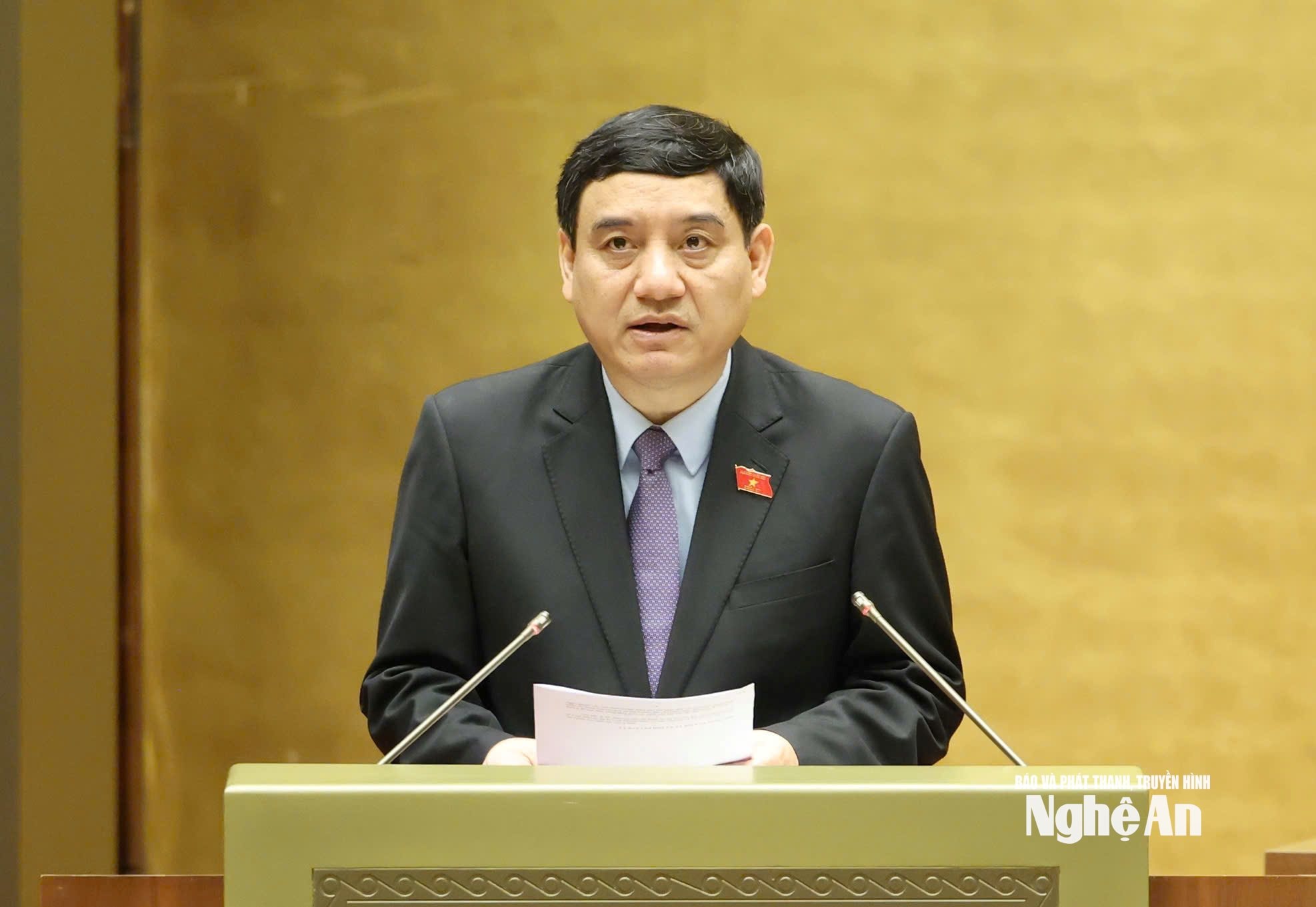
In addition, the Committee on Culture and Society also raised opinions on a number of major contents of the draft law; in which, regarding types of press, the draft Law continues to identify 4 types of press, and at the same time, amends the names to: "print press, radio press, television press and electronic press".
The Committee believes that the change in the above name needs to be carefully considered to ensure consistency with specialized terminology and universality; it is recommended to study the use of the concepts of print, radio, television, and electronic newspapers to suit the reality in Vietnam and internationally. There are opinions suggesting that the drafting agency continue to research and prescribe more appropriate regulations on press types, meeting the development requirements of press types in the digital age.
Regarding the main multimedia media agency, the Department of Culture and Society basically agrees with the addition of regulations on "main multimedia media agency". However, it is recommended to continue researching, clarifying the content, criteria for identification and specific financial mechanisms of main multimedia media agencies.
At the same time, the Committee also said: There are opinions that, in addition to the 6 press agencies identified under Decision 362/QD-TTg dated April 3, 2019 of the Prime Minister on approving the national press development and management plan until 2025, it is necessary to consider adding key multimedia press agencies in some localities or some units that have built prestige and have a certain position in press activities.
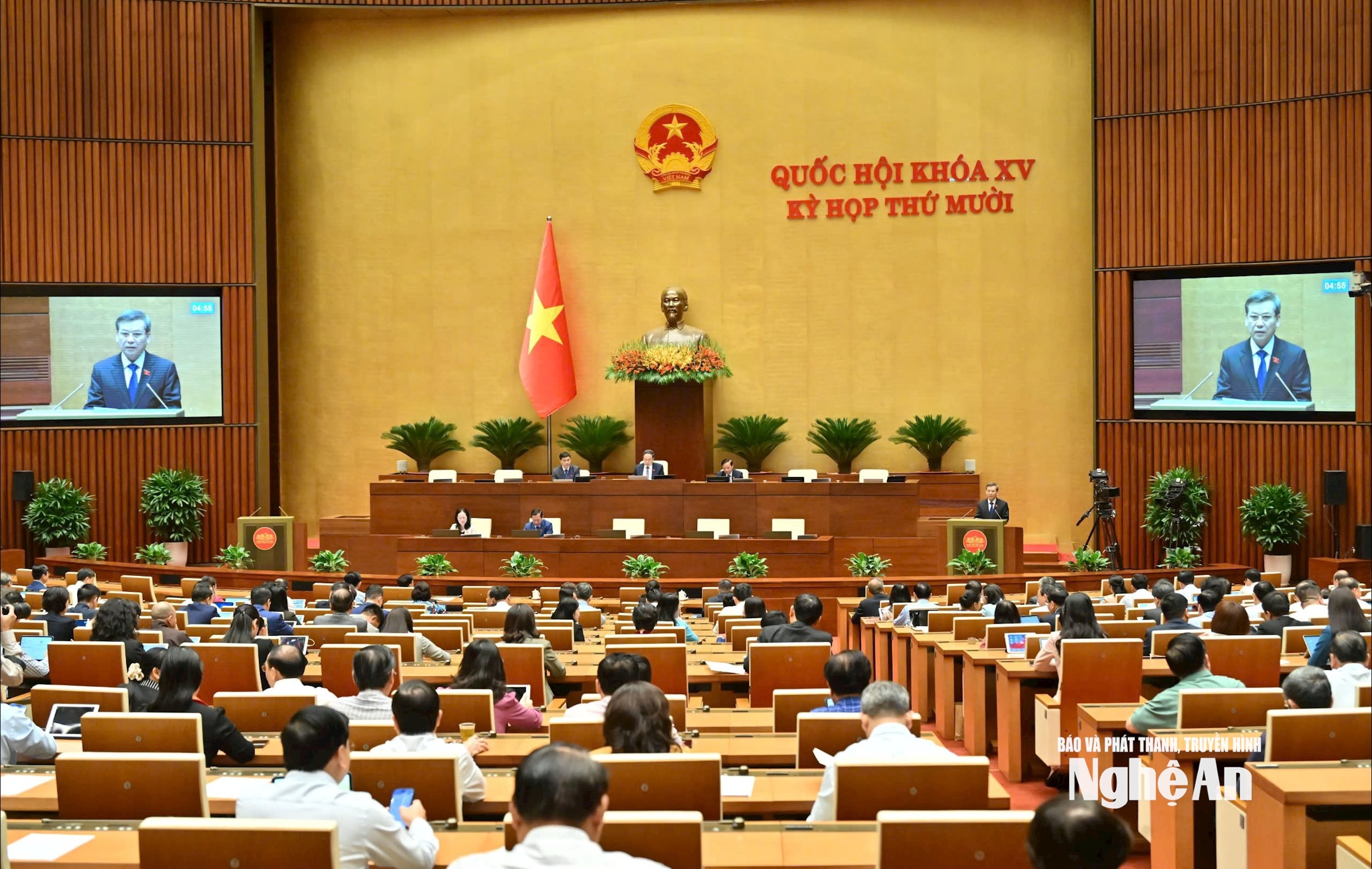
Regarding the contents related to "press economy", the Committee agrees with the regulations to create conditions for press agencies to have more revenue and increase financial resources to ensure and improve the quality of operations as in the draft Law.
However, it is recommended to continue researching, supplementing, and clarifying the concept of "press economy" and regulations related to public investment, autonomy mechanism, and regulations on revenue from business activities of press agencies.
In addition, through the examination, the Committee also raised some opinions on the subjects proposed to be granted press activity licenses; press activities in cyberspace.
During the working program, the National Assembly heard presentations and reports on the Bankruptcy Law Project (amended); Deposit Insurance Law Project (amended); Population Law; and Disease Prevention Law.

